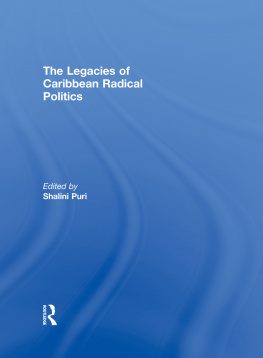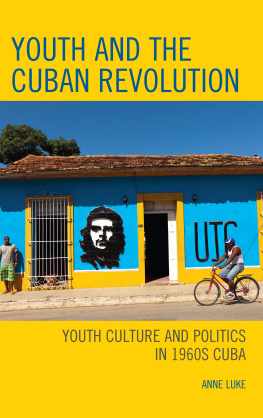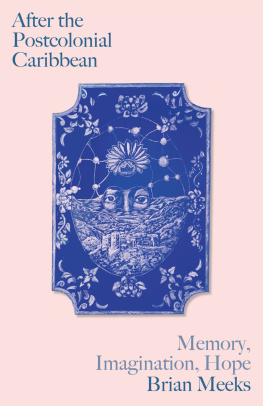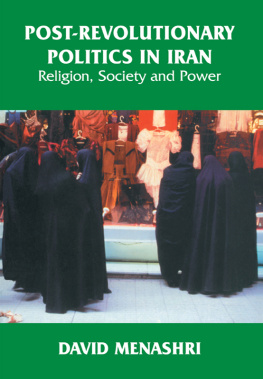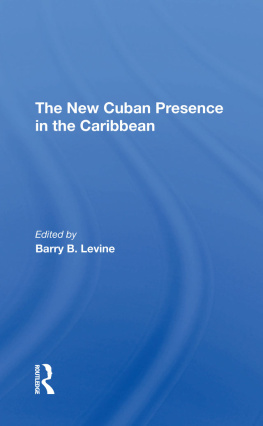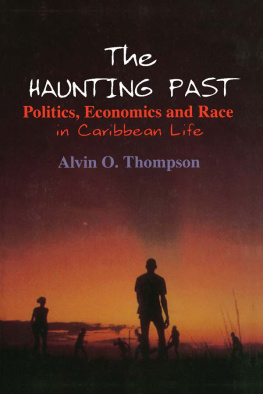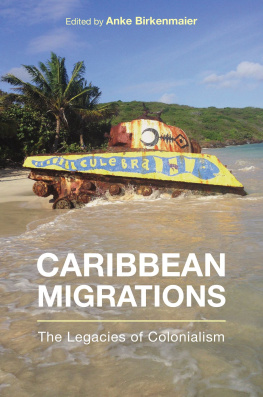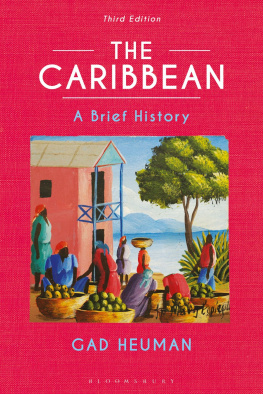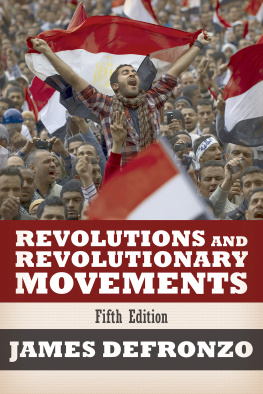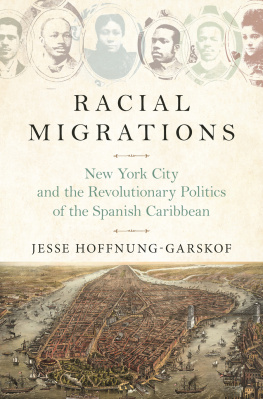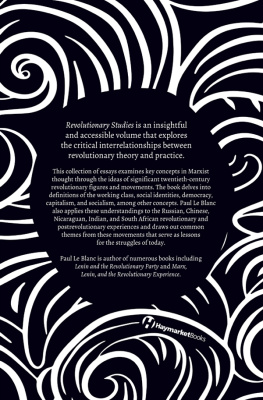The Legacies of Caribbean Radical Politics
The year 2009 marked the 50th anniversary of the Cuban Revolution and the thirtieth anniversary of the Grenadian and Nicaraguan Revolutions, and as such offered an occasion to assess the complex legacies of revolutionary politics in the Caribbean. This volume considers what we might learn from such revolutionary projects and their afterlives, from their successes and their errors. It explores what struggles, currently underway in the Caribbean, share with these earlier and longer revolutionary traditions, and how they depart from them. It analyzes radical movements in Jamaica, Grenada, Cuba, Venezuela, Guadeloupe, Suriname, and Guyana, not only in their national dimensions, but in terms of their regional linkages and mutual influences.
The chapters are drawn from various disciplines and a range of democratic leftist projects. They consider not only state and party politics, but also civil society, cultural politics and artistic production, strikes, and grassroots activism.
This book was published as a special issue of Interventions: International Journal of Postcolonial Studies.
Shalini Puri is an Associate Professor of English at the Univerisity of Pittsburgh. She is the author of The Caribbean Postcolonial: Social Equality, Post-Nationalism, and Cultural Hybridity (Palgrave Macmillan 2004), which won the Gordon and Sybil Lewis Award for best book about the Caribbean, and has edited Marginal Migrations: The Circulation of Cultures within the Caribbean (2003). She is currently completing a book entitled Volcanic Memory: The Grenada Revolution and the Futures of Revolutionary Practice. She is also working on a collaborative project entitled Theorizing Fieldwork in the Humanities.
The Legacies of Caribbean Radical Politics
Edited by Shalini Puri
First published 2011
by Routledge
2 Park Square, Milton Park, Abingdon, Oxon, OX14 4RN
Simultaneously published in the USA and Canada
by Routledge
270 Madison Avenue, New York, NY 10016
Routledge is an imprint of the Taylor & Francis Group, an informa business
2011 Taylor & Francis
This book is a reproduction of Interventions: International Journal of Postcolonial Studies, vol. 12, issue 1. The Publisher requests to those authors who may be citing this book to state, also, the bibliographical details of the special issue on which the book was based
Typeset in Minion by Value Chain, India
Printed and bound in Great Britain by MPG Books Group, UK
All rights reserved. No part of this book may be reprinted or reproduced or utilised in any form or by any electronic, mechanical, or other means, now known or hereafter invented, including photocopying and recording, or in any information storage or retrieval system, without permission in writing from the publishers.
British Library Cataloguing in Publication Data
A catalogue record for this book is available from the British Library
ISBN13: 978-0-415-58689-4
Disclaimer
The publisher would like to make readers aware that the chapters in this book are referred to as articles as they had been in the special issue. The publisher accepts responsibility for any inconsistencies that may have arisen in the course of preparing this volume for print.
Contents
Shalini Puri
Rupert Roopnaraine
Merle Collins
Rafael Hernndez
Rafael Rojas
Raphael Dalleo
Annalee Davis
Anthony Bogues
Sujatha Fernandes
Norman Girvan
D. Alissa Trotz
Yarimar Bonilla
Kathy Sloane
Opinions expressed in contributions are those of the authors, and do not necessarily reflect the views of the editors, the editorial board, or the publisher.
Anthony Bogues is Harmon Family Professor of Africana Studies at Brown University. His latest books are Empire of Liberty: Power, Desire and Freedom and Caribbean Thought: The Literature and Politics of History. He is currently a humanities faculty fellow at the Cogut Humanities Center, Brown University where he is writing a book titled, And what about the Human? The Literatures and Politics of Freedom in Radical Anti-Colonial Thought.
Yarimar Bonilla is an Assistant Professor of Anthropology at the University of Virginia. She is currently working on a book entitled, A Striking Past: Labor and the Politics of History in the French Antilles.
Merle Collins is a Grenadian writer, and a Professor of Comparative Literature and English at the University of Maryland, College Park. She served in Grenadas Ministry of Foreign Affairs during the Grenada Revolution. Her publications include the novels Angel and The Colour of Forgetting; a collection of short stories entitled Rain Darling; and several volumes of poetry, including Rotten Pomerack and Lady in a Boat, as well as several critical essays.
Raphael Dalleo is Assistant Professor of English at Florida Atlantic University. His articles have appeared in journals such as Small Axe, ARIEL, South Asian Review, and the Journal of West Indian Literature. He is coauthor of The Latino/a Canon and the Emergence of Post-Sixties Literature (Palgrave Macmillan, 2007), and is currently completing a manuscript called Caribbean Literature and the Public Sphere: From Anticolonial to Postcolonial.
Annalee Davis works as a multi-media visual artist in Barbados. Her video, On the Map, explores the movement of people from Guyana into Barbados within the context of the CSME, questioning notions of home and belonging. The installation, Just Beyond my Imagination, remaps the Caribbean as a golf course - a playground where islands become sand traps and the sea transforms into astroturf. For more information, visit http://www.annaleedavis.com
Sujatha Fernandes is an Assistant Professor of Sociology at Queens College and the Graduate Center of the City University of New York. She is the author of Cuba Represent! Cuban Arts, State Power, and the Making of New Revolutionary Cultures (Duke University Press, October 2006). Her second book, Who Can Stop the Drums? Urban Social Movements in Chvezs Venezuela is forthcoming with Duke University Press in Spring 2010.
Norman Girvan (http://normangirvan.info) is Professorial Research Fellow in the Institute of International Relations at the University of the West Indies (UWI) in Trinidad. He has been Secretary General of the Association of Caribbean States, Head of Economic Planning in the Government of Jamaica, and Director of the UWIs Sir Arthur Lewis Institute of Social and Economic Studies. He is the author of several books and numerous journal articles on the political economy of development in the Caribbean and the Global South.
Rafael Hernndez is a political scientist, a researcher and the editor of Temas, an academic journal based in Havana. He has taught at universities in Cuba, the U.S., Mexico and Puerto Rico. His most recent books are Looking at Cuba: Essays on Culture and Civil Society (Critics National Award, 2001), The Other War: Studies on Strategy and International Security (2000), and The History of Havana (coauthored with D. Cluster, 2006).
Rafael Rojas is Professor and Researcher, Center for Economic Research and Teaching, Mexico City, and he has been Visiting Professor at Princeton and Columbia University. He has written or edited more than fifteen books on Cuban, Mexican and Latin American culture. His book,

